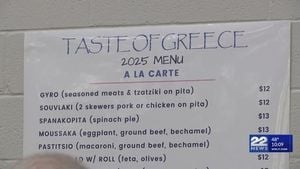On February 9th, 2025, Polish consumers will face restrictions when itcomes to shopping, as this date falls on one of the designated non-trading Sundays established by the country's regulations on Sunday trading. Under the law implemented since 2018, most retail stores are closed on Sundays, allowing shopping only on specific Sunday dates throughout the year. Unfortunately for shoppers hoping to visit their favorite supermarkets this Sunday, they will be greeted by locked doors and closed shutters.
According to multiple sources, including reports from TVN24 and the Gazeta.pl website, February 9, 2025, does not qualify as a trading Sunday. All major retail chains and supermarkets such as Biedronka, Lidl, Auchan, and Carrefour will remain closed on this day. The Polish government has designated specific Sundays throughout 2025 as trading days, with the nearest one being April 13, 2025. This means many consumers will need to adjust their shopping schedules accordingly.
The regulations introduced to limit trading on Sundays were aimed at improving the work-life balance for employees and acknowledging the family-oriented culture prevalent among Polish citizens. The law states clearly which Sundays are exempt from restrictions and allows certain exceptions under which limited shopping can occur.
For those who still find themselves in need of shopping on February 9, there are alternatives available. Specific locations will remain open, including petrol stations, corner shops like Żabka, as well as bakeries, flower shops, and pharmacies. Notably, small neighborhood stores can operate on non-trading Sundays provided they are run by their owners or immediate family members.
While some smaller shops will be open for business, consumers should check individual store hours, as many will have reduced operating hours compared to normal weekdays. The Żabka chain, which operates on the basis of franchise agreements, will be one of the more accessible options, with some outlets opening as early as 6:00 AM and closing by 11:00 PM.
There are also regulatory allowances for e-commerce, meaning consumers can still shop online and have goods delivered even on Sundays. Many of these online retailers offer same-day delivery, which can be especially beneficial for last-minute needs or larger gatherings planned for the weekend.
Sunday rules have become ingrained in the shopping habits of Poles. Many know to plan shopping trips earlier in the week or on Saturdays, knowing full well the restrictions imposed on Sunday trading. The adjustment to the new shopping habits might not come so easily to everyone though, as the looming question remains: What can consumers do when shortages arise on Sundays?
This transition to limited Sunday trading is not without its controversies and discussions, as public sentiment continues to grapple with the balance between free market principles and the desire for family time. There is hope among some for legislative changes to allow more trading Sundays, but the reality for February 9, 2025, is quite clear. Those aiming for shopping sprees will need to redirect efforts during the weekdays or Saturday.
Aside from the large chains, several options are available for consumers on February 9, such as accessing local cornershops, bakeries, or even ordering from online retailers. Families may find it practical to use this day to spend time together, organizing their shopping more systematically within the confines of the store closures. It will be interesting to see if the government and retailers fulfil the demands of shoppers eager for more access to stores on Sundays every week, as they continue to assert their role within the changing social dynamics of Polish shopping culture.



